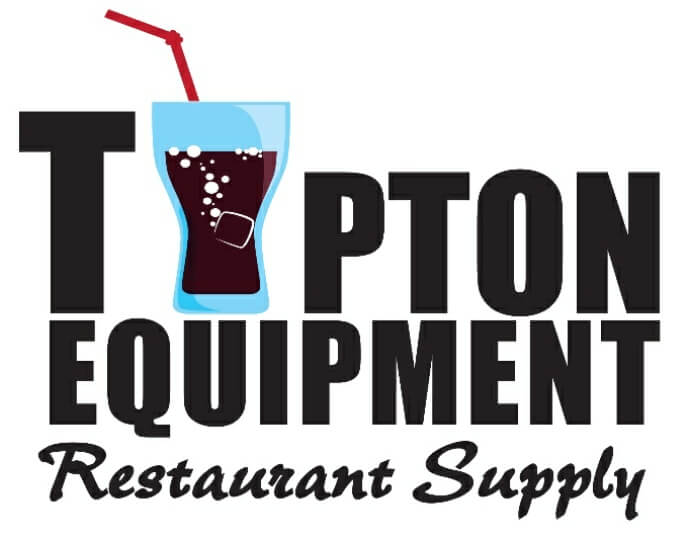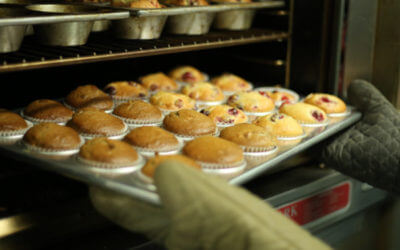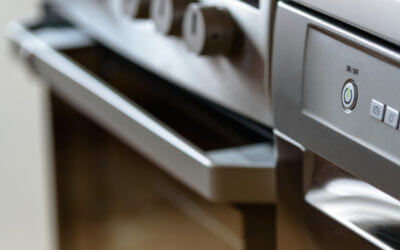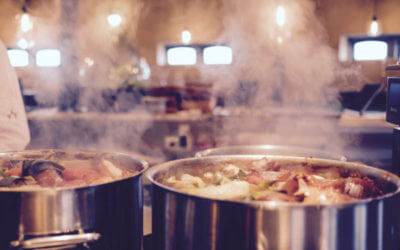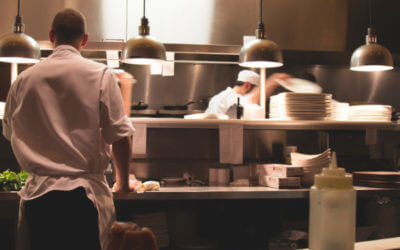Keeping Your Commercial Kitchen Clean
June 20, 2019According to the U.S. Centers for Disease Control and Prevention, one-in-six Americans get sick from consuming contaminated food or beverages every year.
Food poisoning isn’t surprising considering commercial kitchens can serve as a hot spot for germs and bacteria if they aren’t properly maintained. Regardless of whether the kitchen is in a high school cafeteria or a five-star hotel restaurant, ensuring your commercial kitchen is a clean and healthy environment should be a top priority.
Systematic
To operate a successful kitchen, you will need to incorporate a regular cleaning schedule into the day to day running of your business. From everyday tasks to those which can be performed less regularly, your cleaning program will all depend on how often you use your kitchen.
For example, every day you will need to; wipe down the sink and worktops and clean the floor. Whereas cleaning cabinets, appliances, fridges, and other kitchen equipment may need less regular cleaning.
Ensuring you strict daily, weekly, and monthly tasks will help to ensure your cleaning program is adhered too and maintained.
Floors
Given the busyness of the typical commercial kitchen, dirty floors are standard in restaurants. Dropped food can cause germs in the air as small droplets and adversely affect the food’s quality. Employee shoes can track dirt into walk-in freezers, walk-in refrigerators, and food-prep areas, causing cross-contamination. The takeaway? Dirty commercial kitchen floors aren’t just a trip-and-fall hazard; they’re also a threat to public health, as they can harbor organisms that cause food-borne illnesses. Unfortunately, mopping may be insufficient.
So, what does work when it comes to the question of how to clean a greasy restaurant kitchen floor? We recommend a floor cleaning system that scrubs the floor and sucks up all the dirty liquid into a holding tank. While this may seem like an unnecessary expense compared to a mop, it’s an investment in the overall well-being of your restaurant kitchen. An industrial kitchen degreaser is one of the commercial kitchen cleaning supplies that can help remove grease from kitchen floors.
One additional tip: Save cleaning the floors for last to avoid having to do the work again due to debris falling from other surfaces as you wash them.
Clean, Clean, and Cleaner
Kitchen equipment and surfaces need more than just washing. To help ensure that bacteria numbers are reduced to a safe level, it’s essential to sanitize. There are two different ways to disinfect, with a chemical agent or with heat. This takes cleaning one step further and provides long-lasting protection against potential contamination.
Food poisoning occurs when someone consumes unsafe food or drink – often contaminated with harmful bacteria. So how can you keep your commercial kitchen clean and fresh?
First, hands are one of the primary ways in which germs spread. All people working in a position where they touch food should know how to wash their hands properly. Washing includes before and after handling raw food or touching anything that may have been exposed to germs.
Perishable products usually come with “use-by” dates, based on scientific testing. These dates indicate approximately how long items will remain safe for consumption. Following the use-by date, food could be unsafe to eat, even if it looks and smells normal.
It’s essential to make sure that your refrigerator is set below the 41°F if you want to ensure that chilled foods remain chilled to a safe temperature. Keeping foods at the right temperature during periods of storage can ensure that harmful germs are not permitted to grow and multiply. Make sure that commercial fridges do not get overfilled, as there should always be enough room for air to circulate – thereby maintaining the correct temperature.
Apply routines and stay consistent, and your commercial kitchen will thrive in cleanliness and productivity.
6 Equipment Buying Tips Every Restaurant Owner Needs to Know
If you own a restaurant, knowing how to purchase the right equipment is one of the key ingredients to the success of your company. Here’s a bit of advice to help you become a purchasing pro: Our 6 Restaurant Equipment Buying Tips 1. Consider your current situation and...
Don’t Buy a Commercial Refrigerator Before Considering These 4 Things
A commercial refrigerator is an equipment staple of every restaurant. There are several things to consider when acquiring a commercial refrigerator for your kitchen. When searching for the correct type of unit, here are four things to consider to help you choose the...
5 Ways to Get the Most out of Your Dishwasher
Dishwashers are an incredibly helpful timesaver, and in the fast-paced restaurant industry, staff and managers are desperate for even a small amount of extra time. Although simply putting dishes into a machine seems simple, if your dishwasher is not well-maintained...
How to Keep Having Fun while Running your Restaurant
Restaurant owners typically have a passion for cuisine. Opening and running a restaurant is exciting, providing the opportunity to fully explore and develop your vision. However, if you have been in the restaurant business for any length of time, you know that it is...
3 Great Reasons to Maintain Your Restaurant Equipment
As the owner of a restaurant, you want a healthy and clean business. In the hustle of everyday restaurant management, it can be easy to forget to take care of issues that don’t seem as pressing as the customer complaining that they got the wrong order or that their...
Avoid Surprises During an Appraisal of Your Restaurant Equipment
When it comes to time for your restaurant equipment to be appraised, confusion can set in. For the purpose of the appraisal, personal goods are given value, but goods that are classified as ‘real goods’ are considered part of the real estate or the building structure...
Essentials of Cleaning and Preventative Maintenance for Your Restaurant Equipment
When it comes to your restaurant equipment, regular cleaning and maintenance is essential for making sure your equipment lasts for years to come. And it isn’t simply a matter of making your food processors and commercial mixers more efficient. There are considerable...
3 Tips for Maintaining Your Commercial Oven
As a restaurant owner, buying a commercial oven is an enormous investment. You will desperately want this oven to work properly and you need to make sure it does. You are responsible for your restaurant business. But what if your commercial oven stops working on the...
5 Steps to Cutting Food Waste from Your Kitchen
Food waste is a problem around the world. Taking steps to prevent food waste in your kitchen doesn’t just make your restaurant more morally strong; it can also help you save money on ingredients and attract more customers. Here are some steps you can take to reduce...
Planning Your Equipment Needs When Your Restaurant is Expanding
Your restaurant is doing great, guests are coming in, and they’re spreading the word about the culinary masterpieces your restaurant offers, as well as the exceptional service that is provided by the kitchen equipment and staff. But with all the new business, you’ve...
How to Keep Cool in the Restaurant Kitchen
Being in the kitchen, it’s hard not to feel overheated, especially during the summer. The heat of the stoves and ovens will quickly make the restaurant kitchen somewhere you don’t want to be. How do you keep cool in the kitchen? We have brought together some of the...
How and Why to Make Your Restaurant Lead-Free
If you own a restaurant, then you already know how important water is to your operations, and that poor water quality can adversely impact the success of your business. That is why you should ensure a restaurant lead-free environment. Water is an integral part of all...
Can You Handle These 5 Types of Difficult Restaurant Customers?
No matter how much you love it, running a restaurant certainly has its challenges. It is time-consuming, hectic, labor-intensive and competitive. And to cap it all, there are the difficult restaurant customers you often have to deal with. It’s impossible to please...
5 Unique Restaurant Concepts Guaranteed to Thrill Diners
With restaurants on almost every block, having a unique restaurant concept can help set you apart, making your establishment stand out. These concepts may have taken a bit to catch on, but they have quickly become popular sellers. Here are 5 unique restaurant concepts...
How to Run an Energy-Efficient Restaurant
You probably don’t need to be reminded of the high cost of electricity in running a restaurant compared to an energy-efficient restaurant. Right now, many establishments, including restaurants, are going green and adopting eco-friendly strategies to conserve...
